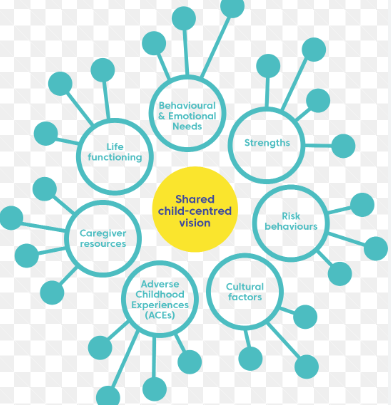
Reimagining Healthcare: Analyzing Value-Based Care vs Fee for Service with Cans assessment
In the dynamic landscape of healthcare, the debate between value-based care and the traditional fee-for-service model has been a topic of intense discussion. The emergence of innovative assessment tools like CANS, or Child and Adolescent Needs and Strengths, has added a new dimension to this conversation. By incorporating Cans assessment into the equation, we can critically examine how it impacts the delivery of both value-based care and fee-for-service, and how it harmonizes with the transformative potential of social services software solutions.
Value-based care emphasizes the quality of care delivered to patients. It focuses on achieving positive outcomes and efficient resource utilization, aligning the interests of healthcare providers with the health and satisfaction of patients. Cans assessment, with its ability to provide a comprehensive understanding of individual needs and strengths, complements the value-based care approach. It empowers healthcare professionals to tailor interventions, track progress, and ensure that the care provided addresses the unique requirements of each patient.
Furthermore, Cans assessment contributes to healthcare data interoperability, an essential aspect of value-based care. When various providers can access standardized information through social services software solutions, the coordination of care improves, reducing redundancies, and leading to a more patient-centered approach. Cans assessment’s standardized framework ensures that the data exchanged between different systems is consistent and relevant, supporting the overall goals of value-based care.
On the other hand, fee-for-service has been the traditional reimbursement model in healthcare, where providers are paid based on the quantity of services delivered. The challenge with this model is that it may incentivize quantity over quality. Here, Cans assessment can act as a bridge, encouraging a more patient-centric approach even within the fee-for-service framework. By integrating Cans assessment, providers can gain insights into the needs and strengths of their patients, ensuring that the services rendered align with individual well-being.
Moreover, Cans assessment contributes to improved transparency and accountability, which are essential in both value-based care and fee-for-service models. The standardized nature of Cans assessment allows for clearer documentation of patient progress, which is valuable for demonstrating the effectiveness of interventions and justifying reimbursement.
In reimagining healthcare, Cans assessment shines as a valuable tool that enhances the principles of value-based care, facilitates healthcare data interoperability, and complements the goals of fee-for-service. Its integration into social services software solutions underscores the transformative potential that technology and comprehensive assessments can bring to the way we deliver care, fostering a healthcare system that truly puts patients’ needs at the forefront.